These reflections are a result of more than 40 years of ministry as a Roman Catholic priest. Most of these years I spent in the Diocese of Charlotte which covers Western North Carolina. Now I am retired, and live in Medellín, Colombia where I continue to serve as a priest in the Archdiocese of Medellín.
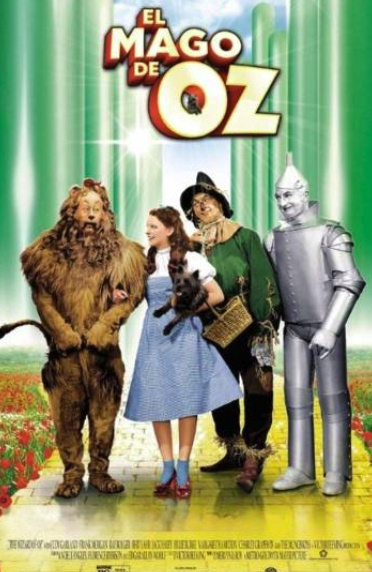
Responsorial Psalm (Psalm 50)
R. To the upright I will show the saving power of God.
God the LORD has spoken and summoned the earth, from the rising of the sun to its setting. From Zion, perfect in beauty, God shines forth.
R. To the upright I will show the saving power of God.
https://bible.usccb.org/bible/readings/112025.cfm
I am grateful to my mom and my grandmother for showing me the faith by their example of caring for others. Yesterday I touched my childhood again, we went to see The Wizard of Oz (1939). It is only the second time I’ve have seen it in a movie theater. The first time I saw it was in the mid 1950’s, over 70 years ago. It is pure magic when Dorothy opens the door of the house after the cyclone and walks into the land of Oz, and suddenly the black and white screen turns into color. In a darkened movie theater the effect is overwhelming—especially when you are five years old. Yesterday, the magic happened again! https://youtu.be/BQqFq-ggiTc?si=4XfmI3FU6RGmwyAX
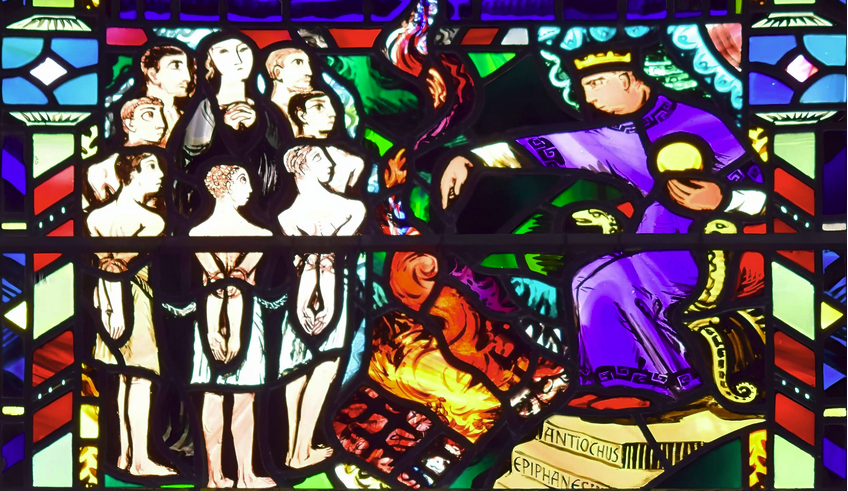
It happened that seven brothers with their mother were arrested and tortured with whips and scourges by the king, to force them to eat pork in violation of God's law. (2 Macc 7:1, 20-31)
https://bible.usccb.org/bible/readings/111925.cfm
Thanks to the lectionary makers we are spared the gruesome details of the martyrdom of the mother and her seven sons. The Books of the Maccabees are written to encourage people to resistance in times of persecution and to be faithful to the Law of God. https://youtu.be/vte_291mnZ0?si=vX-5e8PpwfD7STs5
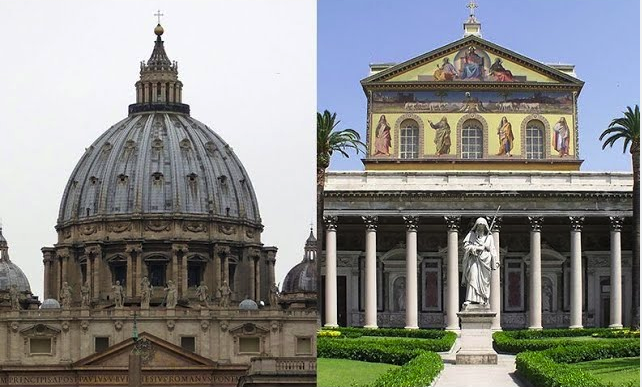
When they saw this, they began to grumble, saying, “He has gone to stay at the house of a sinner.” But Zacchaeus stood there and said to the Lord, “Behold, half of my possessions, Lord, I shall give to the poor, and if I have extorted anything from anyone I shall repay it four times over.” And Jesus said to him, “Today salvation has come to this house because this man too is a descendant of Abraham. For the Son of Man has come to seek and to save what was lost.” (Lk 19:1-10)
https://bible.usccb.org/bible/readings/111825.cfm
The story of the Lord’s visit to the house of Zacchaeus has always been used in the dedication of churches. The Basilica of Saint Peter, or the Vatican Basilica (consecrated 326), and the Basilica of Saint Paul Outside the Walls (consecrated 324) were originally built by Constantine, and as the two apostles are claimed as founders of the church of Rome, the anniversary of the dedications of their basilicas is kept on the same day. Today is also my 7th anniversary of my arrival in Colombia. https://youtu.be/7f9bzXG2BF0?si=DjDs_5cFSkrsYe1M
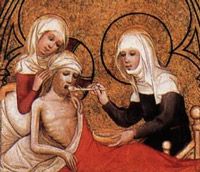
As Jesus approached Jericho a blind man was sitting by the roadside begging, and hearing a crowd going by, he inquired what was happening.
They told him, "Jesus of Nazareth is passing by." He shouted, "Jesus, Son of David, have pity on me!" (Lk 18:35-43)
https://bible.usccb.org/bible/readings/111725.cfm
“Jesus, have pity on me!” And of course, Jesus does. But would we? That’s the question that trips up all of us would-be disciples. Saint Elizabeth of Hungary (1207-1231) was filled with compassion and cared for the sick. She is the patron saint of the Third Order of Saint Francis of Assisi.
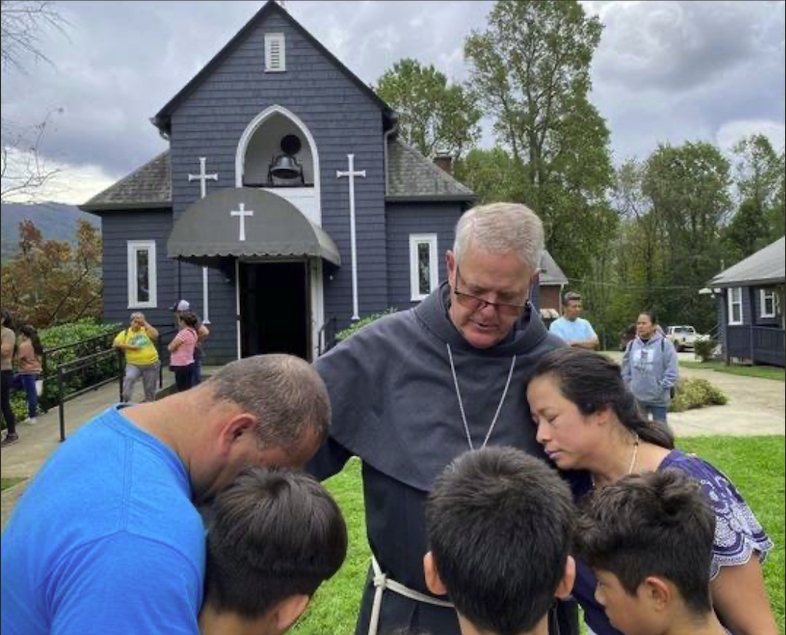
Then they asked him, "Teacher, when will this happen? And what sign will there be when all these things are about to happen?" He answered, "See that you not be deceived, for many will come in my name, saying, 'I am he,' and 'The time has come.' Do not follow them!.” (Lk 21:5-19)
https://bible.usccb.org/bible/readings/111625.cfm
Who’s got time to worry about the end of the world? It’s time to get to work. There are hungry people to feed, good decent neighbors who have been locked up and separated from their families and their spiritual communities, sick folks who have been abandoned without insurance and medical care, human rights being trampled on, and children living in fear of going to school. Is it a scary time? Absolutely. But the Lord reminds us: ‘by perseverance you will secure your lives.’ So breathe, say a prayer, and get back to work. https://youtu.be/nsMQ8V4pNCI?si=ldrtV2Lmeq5NoQtz



